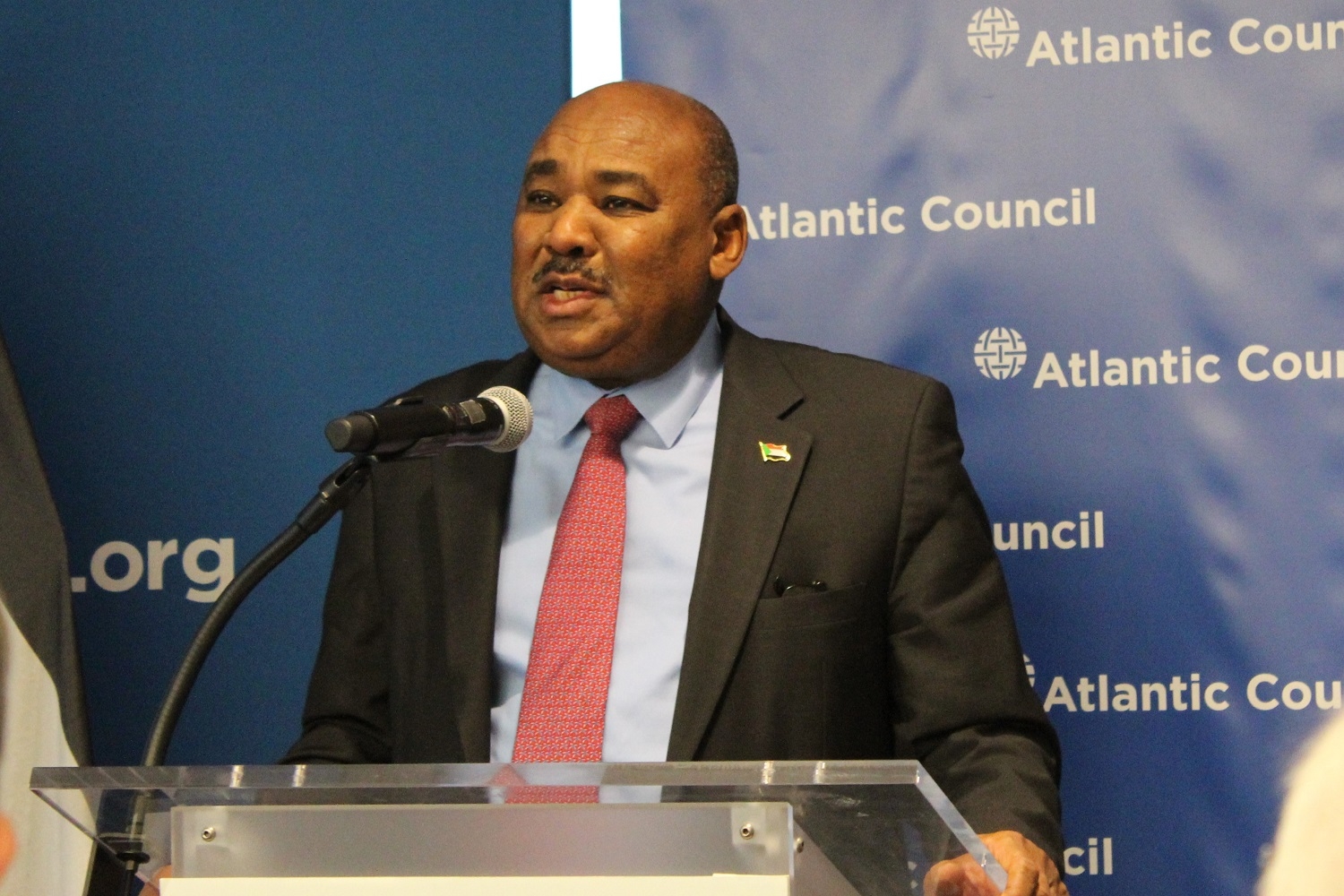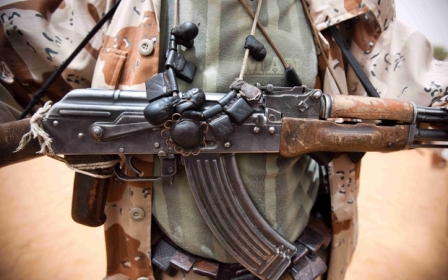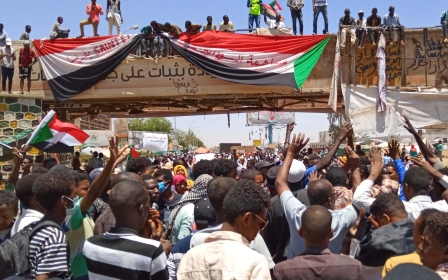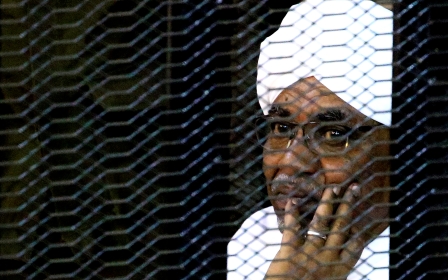Sudan will cut subsidies, implement safety net programmes: Finance minister

Sudan will provide direct financial assistance to working-class people to create a safety net that would offset the effects of economic reforms and spending cuts, including lifting governmental subsidies on some basic goods, the country's finance minister has said.
The Sudanese government heavily subsidises bread and petrol, allowing all consumers to pay a fraction of their actual price.
"We cannot really do any economic reforms without reforming the commodity subsidies," Finance Minister Ibrahim Elbadawi said on Tuesday.
Speaking at the Atlantic Council, a Washington-based think tank, Elbadawi said the government will provide direct payments to underprivileged people to balance the cuts.
New MEE newsletter: Jerusalem Dispatch
Sign up to get the latest insights and analysis on Israel-Palestine, alongside Turkey Unpacked and other MEE newsletters
The programme will also generate jobs for young people, who would help conduct a survey to identify families that would qualify for assistance.
"Rather than subsidising petroleum products for the middle income and upper middle income [classes] in Khartoum and other cities… Let us actually live to our ideals of the revolution of peace, freedom and justice," he said.
"Let us allocate resources to those who need them."
Elbadawi is part of the transitional government that is leading the country after a popular uprising that led to the toppling of longtime leader Omar al-Bashir in April.
Facing protests for a civilian-led government, the Sudanese military, which had taken control of the country after Bashir, came to a power-sharing agreement with the opposition in August.
On Tuesday, Elbadawi said the country is set to embark on a 10-year financial plan to ignite and sustain economic growth.
"We're working very hard to improve our institutions," Elbadawi said, adding that the new government will establish independent authorities to review investment laws and oversee civil service reform.
The government will also conduct a census to assess the needs of the population, the minister said.
US terror blacklist
Elbadawi also called for removing Sudan from the US State Sponsors of Terrorism (SST) list, saying that the country had inherited "heavy baggage" from the old regime.
Sudan, which hosted the late al-Qaeda leader Osama bin Laden in the early 1990s, has been on Washington's list of state sponsors of terrorism since 1993. Despite Bashir's departure, the country remains there with Syria, Iran and North Korea.
"Despite this glorious and peaceful revolution, Sudan continues to be listed as a terrorist state, simply because we are living in the shadow of the SST. This is another crippling - in fact - impediment to our ability to resuscitate the economy," Elbadawi said.
Being on the list restrict countries' access to global financial markets and also curbs Americans' ability to do business with them.
Speaking at the same Atlantic Council event on Tuesday, US special envoy for Sudan Donald Booth said the United States is backing the African country's transitional government.
As for the state sponsor of terrorism designation, the US diplomat said de-listing Sudan depends on verifying that the new authorities meet certain requirements - without specifying what they are.
"It's not in anyone's interest for SST to be lifted if indeed there's any sponsorship of terrorism going on," Booth said.
"I'm not saying there is. I'm just saying this is something we need to be careful to verify. It's a multi-step process, and Sudan has to meet the statutory and policy criteria for the lifting of SST."
On Monday, several Arab and Western countries had expressed backing for Sudan's economic plan after a meeting in Washington.
US diplomat Tibor Nagy, who chaired the meeting of the group dubbed Friends of Sudan, said the countries had discussed the SST designation.
"A number of partners raised the issue of the United States’ State Sponsor of Terrorism (SST) designation of the government of Sudan and its impact on arrears clearance at international financial institutions, access to concessional funding, and international investment," Nagy said in a statement.
"The United States noted that it has begun engagement with the government of Sudan on the requirements for potential recession of Sudan’s SST designation."
Middle East Eye delivers independent and unrivalled coverage and analysis of the Middle East, North Africa and beyond. To learn more about republishing this content and the associated fees, please fill out this form. More about MEE can be found here.




